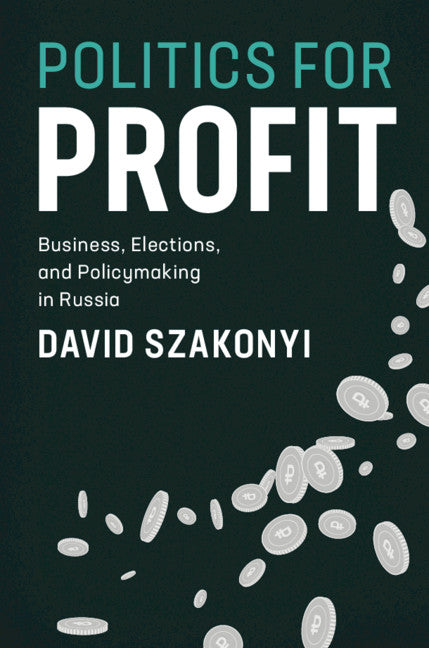Freshly Printed - allow 3 days lead
Couldn't load pickup availability
Politics for Profit
Business, Elections, and Policymaking in Russia
Businesspeople run for office to protect their firms' interests against competitors and shape government to work for the business community.
David Szakonyi (Author)
9781108491631, Cambridge University Press
Hardback, published 9 July 2020
350 pages, 13 b/w illus.
23.4 x 15.6 x 2.1 cm, 0.66 kg
'Szakonyi's Politics for Profit is clear, well-organised and grounded in a wealth of evidence … [it] is an ambitious and thorough book that considerably advances existing scholarship on the influence of business in politics. Policymakers would do well to consider Szakonyi's recommendations, and researchers should seize the opportunity to test his conclusions in other cases.' Isabelle DeSisto, Europe-Asia Studies
Businesspeople run for and win elected office around the world, with roughly one-third of members of parliament and numerous heads of states coming directly from the private sector. Yet we know little about why these politicians choose to leave the private sector and what they actually do while in government. In Politics for Profit, David Szakonyi brings to bear sweeping quantitative and qualitative evidence from Putin-era Russia to shed light on why businesspeople contest elections and what the consequences are for their firms and for society when they win. The book develops an original theory of businessperson candidacy as a type of corporate political activity undertaken in response to both economic competition and weak political parties. Szakonyi's evidence then shows that businesspeople help their firms reap huge gains in revenue and profitability while prioritizing investments in public infrastructure over human capital. The book finally evaluates policies for combatting political corruption.
Introduction
1. A Theory of Businessperson Candidacy
2. Identifying Businesspeople Who Run for Office
3. Economic Competition, Weak Parties, and Businessperson Candidacy
4. Choosing Ballots, Parties and Delegates
5. Firm-Level Returns to Businessperson Candidacy
6. Businesspeople as Policymakers
7. Conclusion and Policy Recommendations.
Subject Areas: International business [KJK], Political economy [KCP], Comparative politics [JPB], European history [HBJD]


